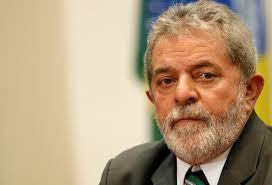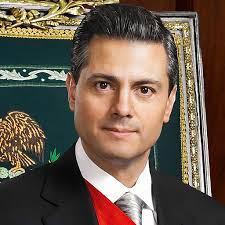 Jonathan Tepperman’s book The Fix is prefaced with a quote: “Politics is the art of looking for trouble, finding it, misdiagnosing it, and then misapplying the wrong remedies.” It’s from Marx. (Not Karl but Groucho.)
Jonathan Tepperman’s book The Fix is prefaced with a quote: “Politics is the art of looking for trouble, finding it, misdiagnosing it, and then misapplying the wrong remedies.” It’s from Marx. (Not Karl but Groucho.)
My daughter gave me this book for Christmas. The Fix is great.
Its subtitle is How Nations Survive and Thrive in a World in Decline. Tepperman begins, like my own Rational Optimism book, with “The Litany” — the familiar catalog of everything wrong with the world. Admittedly that list has grown since I wrote in 2008. Yet I still don’t see, in the big picture, “a world in decline.”
Neither does Tepperman, really. He deploys exactly what I meant by rational optimism — not Pollyanna’s rose-colored glasses, but a belief that problems can be solved through reasoned effort. He discusses ten in particular (“the terrible ten”) and, for each, how one nation at least did solve it. Mostly how leaders solved them, because leadership is key.

Lula
The first issue is inequality; the country Brazil; the leader Lula. Of course Brazil hasn’t completely eradicated inequality, but it was previously one of the most unequal nations, and has made great strides. Lula came to the presidency in 2003 (on his fourth try) seen as a Marxist radical. But he defied expectations by acting instead as the most orthodox steward of the economy. That gave him the credibility to implement his Bolsa Familia program.
Government programs for the poor typically entail “doing things for them” — which is complicated, inefficient (much bureaucracy), costly, and prone to corruption. Bolsa Familia instead just hands out cash. But to get it, your kids must go to school and get immunizations and medical check-ups. This helps them escape the poverty trap, with better future prospects. Also smart is giving the money to the mothers, sidestepping feckless dads and empowering women. And its simplicity makes the program actually quite cheap, costing less than half a percent of GDP; moreover, by turning the poor into consumers, it boosted the economy, arguably more than paying for itself. All this helped sell the program to skeptics.
Next is immigration, and Canada — one of the world’s most welcoming nations. In fact, Canada seeks out people to come — most of them nonwhite. It uses a point system encompassing factors like education and skills (in contrast to America’s relationship-based system — “extremely irrational” says Tepperman).
Canada’s system developed to kill two birds with one stone. The vast nation was underpopulated. And it was experiencing ethnic tension between English and French speakers. The solution, spearheaded by Prime Minister Pierre Trudeau, was to subsume those differences into a broader ethos of multiculturalism.
The point system makes most Canadians see immigration as a plus, without the kind of xenophobic feelings so prevalent elsewhere. In fact, most actually consider multiculturalism important to their national identity.

But America is not the book’s villain. Indeed, one of its chapters is a good news story about the USA (imagine that). It concerns our recent energy revolution. (What, you didn’t notice?) It’s the fracking explosion (poor choice of words) to extract natural gas from shale, turning America into one of the world’s biggest energy producers.

Remember how we pined for “energy independence?” Seemed hopeless — until the frackers got busy and started producing. Likewise all the Cassandra warnings about “peak oil.” Don’t hear that phrase much anymore either.
But I know what you’re thinking. At one time our local paper was filled with almost daily commentaries and reader letters expressing fear of fracking — a widespread movement which led some jurisdictions, including New York State and much of Europe, to ban it. But Tepperman dismisses all that fearmongering in barely a paragraph. The fact is that while fracking does (like every technology) entail risks, it has advanced sufficiently to deal with them quite well. So fracking has gone on for years now, producing bazillions of granfaloons of energy, and all the horror stories have proved to be basically chimaeras.

Peña Nieto
Another tale concerns Mexico, but has great relevance for the U.S. Mexico’s President Peña Nieto came to office upon a background of bitter partisan gridlock, among three main parties, no less. But he initiated a dialog among key leaders, that wound up committing all three parties to a big package of important reforms.
How was this remarkable breakthrough achieved? Tepperman: “quiet negotiations, painful compromise, political leaders willing to take risks and keep their word, and above all a recognition that zero-sum politics accomplishes nothing.” He also stresses the virtues of pragmatism as opposed to wearing ideological blinders. I was surprised Tepperman didn’t quote Deng Xiaoping: “It doesn’t matter whether a cat is black or white, so long as it catches mice.”


Still, one of the book’s key points holds true: leadership matters. America has suffered from a notable lack of the kind of leadership Tepperman depicts. Obama certainly did not have it. He created the Simpson-Bowles commission to produce a big compromise plan like Mexico’s, then walked away from it. Unlike Peña Nieto, Obama was content to let the partisan dynamics just play themselves out, with predictable results. And as for our current president: oy.
Advertisements